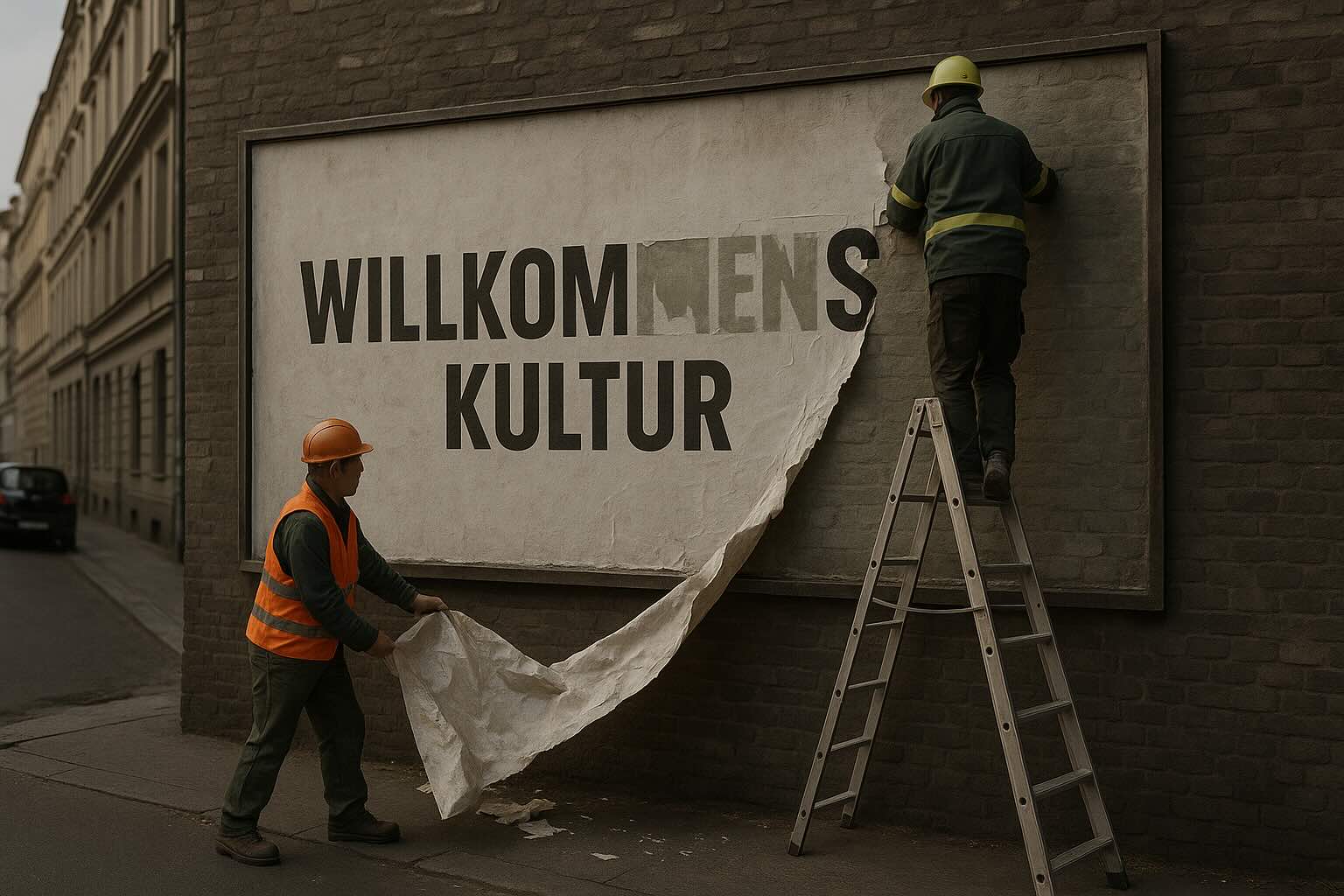Germany’s decade of Willkommenskultur – the Golden Age of unchecked migration and moral posturing – is suddenly “problematic.”
Under Chancellor Scholz, Berlin proudly played the moderating role in Europe’s migration debates.
Now Merkel’s one-time protégé Friedrich Merz has apparently had an epiphany: borders actually exist!
Merz’s first Bundestag address called for “more limitations, more rejections, more control, more deportations” – exactly the kind of policies Eastern European “extremists” championed years ago.
In other words, the new German government is leading Europe’s hard-right turn on migration, even as it pretends to have invented it.
Merz, once critical of “hardliners,” now embraces border-closing policies that would make Viktor Orbán blush.
Indeed, Germany’s interior minister boasted that Berlin is no longer sitting in the “brakeman’s cab” but is part of the driving force behind Europe’s crackdown.
The result is a laundry list of “brilliant” ideas.
Border controls?
Apparently, a genius idea. Never mind that Poland has been enforcing strict checks for years. Merz insisted Germany’s crackdown “will not cause problems” for neighbors (though Poland’s PM Donald Tusk warned unilateral checks would strand migrants in Poland.)
Asylum-seekers turned away?
Brilliant! Merz now says those without papers will be rejected at the border, and, by EU law, asylum must be sought in the first country entered. Exactly as Bulgaria and Greece have long done. When Austria and Hungary proposed similar rules, they were dismissed as “xenophobic.”
Deportations?
How original and innovative! Germany is now pushing to ship rejected migrants to third countries and to process asylum claims outside the EU, explicitly copying the UK’s Rwanda scheme.
This is exactly the tough-sounding plan that Berlin once derided – except now they’re calling it pragmatic.
The irony is thicker than a Bavarian pretzel.
The same German elites who spent years denouncing Hungary and Poland as “undermining European values” for defending their borders are now co-leading the EU’s anti-immigration charge.
Merz’s coalition claims it’s simply “helping” Southern Europe by keeping asylum-seekers where they first land.
But let’s be honest: this admission comes a decade late, after social strains and the rise of the far-right AfD (which prompted Merz’s hard turn). Germany’s political class now repackages Eastern Europe’s long-voiced warnings as their own bold new leadership.
Remember when Hungary built a razor-wire fence in 2015?
Germany called it shameful.
Germany even lectured Bulgaria on “pushbacks” of migrants.
Today, however, Berlin has little to say as it adopts a tougher line on external borders – yet still refuses to invite Southern EU leaders to its high-alpine summit. At the Zugspitze meeting (designed as a symbolic “migration summit”), not a single Greek, Italian or Balkan interior minister was present.
Instead, Merz aligned with Austria, Denmark and Poland to pressure others into doing the same. As one analyst noted, Germany now “advocate[s] the interests of Central and Northern European countries far more firmly”.
Poland’s Tusk was having none of it: Warsaw’s patience with Germany “is becoming exhausted” after the Berlin crackdown, he warned. (Tusk promptly announced new checks on Poland’s own borders in response.) Meanwhile Bulgaria – long scolded as a “negative example” for its hardline stance – watches in bemusement as Germany quietly echoes its policies.
When Sofia tried to secure its Turkey border, Berlin howled about human rights.
Now Merz’s government champions border security above all.
The lesson?
When Germany does it, it’s “pragmatic,” but when its Eastern neighbors do it, it’s “authoritarian.”
If Germany’s migration U-turn is hypocritical, wait until you see its energy déjà vu.
Merz once said “Nord Stream 2 was a mistake” – a pipedream his predecessors zealously promoted until it got shut off.
But admitting a mistake doesn’t fix the fallout: Europe is paying the price for a decade of German-led energy experiments. Chemical plants are bleeding jobs and begging for relief. “We are in a severe crisis and can’t wait,” pleaded the CEO of a major German chemical park – urging Berlin to reopen pipelines. “Reopening [Nord Stream] would reduce prices more than any current subsidies,” he said.
Notably, 49 percent of East Germans now want the pipeline back for cheap gas.
In other words, Merkel’s fast nuclear phase-out and green gambits left industry freezing, and only now does Germany grumble about dependence on dictators. One can only hope Merz doesn’t need another decade to realize his energy path is also flawed.
So, here’s to Germany’s long-overdue awakening.
Roughly ten years after its open-arms policy strained social services and helped fuel the AfD wave.
To praise Berlin for “joining the club” of stricter policies is galling when the “club” members – from Poland to Hungary – have been bearing the brunt of migration since 2015. Eastern Europeans will keep watching (with popcorn in hand) as Germany stumbles toward the solutions they championed long ago, insisting it’s progress all along.
Prost, Herr Merz. Welcome to the realpolitik half of the European Union.
